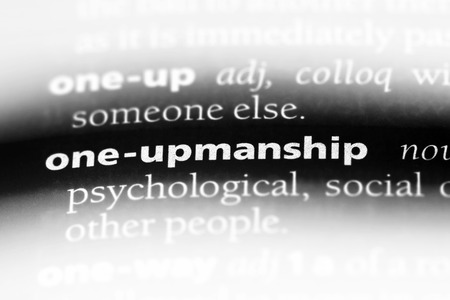Introduction to Master Numbers: Origins and Cultural Context
The concept of master numbers, particularly the numerals 11, 22, and 33, has long captured the human imagination across global cultures. These numbers are often credited with a heightened spiritual or psychological significance, believed by many to carry vibrations of insight, leadership, and transformation. Tracing their origins leads us back to ancient civilisations such as those in Egypt, Greece, and India, where numerology was intertwined with philosophy and spiritual practice. Over centuries, these ideas migrated and evolved, eventually becoming embedded within various Western esoteric traditions. In the context of modern Britain, master numbers have found resonance not only among practitioners of New Age spirituality but also within wider popular culture. The British Isles have a rich tapestry of mysticism—from Celtic traditions to the influence of the Hermetic Order of the Golden Dawn in Victorian London—providing fertile ground for numerological beliefs to flourish. Today, discussions about master numbers appear in everything from self-help literature to mainstream media, reflecting both historical continuity and contemporary adaptation. This interplay between global traditions and local British culture sets the stage for understanding why master numbers hold a unique place in the spiritual and psychological landscape of modern Britain.
Psychological Perspectives on Master Numbers
Within the cultural landscape of modern Britain, master numbers—most notably 11, 22, and 33—have become subjects of interest not only for their spiritual connotations but also for their psychological impact on individuals. These numbers are often regarded as carriers of heightened significance, which can shape personal identity, influence wellbeing, and alter self-perception among Britons. Contemporary psychological theories provide a useful framework for understanding these effects, particularly in a society where numerology intersects with mental health discourses.
The Role of Master Numbers in Personal Identity
Many individuals in the UK identify strongly with their perceived master number, often discovered through numerological calculations based on birth dates or names. This identification can contribute to a sense of uniqueness or destiny, reinforcing core aspects of self-concept. For some, aligning with a master number offers a narrative of purpose that complements traditional British values such as resilience and self-improvement.
Influence on Wellbeing and Self-Perception
The belief in possessing a master number may contribute both positively and negatively to wellbeing. On one hand, it can foster hope, motivation, and a sense of belonging within numerological communities. On the other hand, it may lead to pressure or anxiety if individuals feel compelled to live up to the higher calling associated with these numbers. The table below summarises key psychological impacts observed among UK residents who engage with master numbers:
| Aspect | Positive Influence | Potential Challenges |
|---|---|---|
| Identity Formation | Enhanced sense of self; clarity of purpose | Risk of over-identification; rigidity in self-concept |
| Wellbeing | Increased optimism; supportive community networks | Anxiety from expectations; potential isolation if misunderstood |
| Self-Perception | Empowerment; feeling special or chosen | Sensitivity to failure; fear of not fulfilling potential |
Cultural Context: The British Experience
It is important to note that the psychological significance attached to master numbers in Britain is shaped by local attitudes towards spirituality and mental health. While some view engagement with master numbers as an enriching personal practice, others approach it with scepticism, reflecting the nation’s pragmatic outlook. Nevertheless, for those who resonate with these numbers, the psychological journey they inspire remains a notable facet of contemporary British life.
![]()
3. Spiritual Interpretations in Modern British Society
Within the fabric of modern British society, master numbers such as 11, 22, and 33 have garnered a subtle yet growing spiritual appeal. In an era where traditional religious observance is often balanced with more individualistic spiritual exploration, these numerological symbols have found resonance across both secular and faith-based communities. Contemporary Britons—whether they identify with organised religion, consider themselves spiritual but not religious, or even approach life from a largely secular perspective—are increasingly drawn to the symbolic power embedded in master numbers.
For many, these numbers offer a framework for personal meaning-making that sits comfortably alongside existing beliefs or stands alone as a source of guidance. For example, within certain Church of England circles, some parishioners may privately reflect on the significance of repeating digits seen in daily life, interpreting them as gentle nudges from the divine or the universe. Meanwhile, in more eclectic spiritual groups—such as those involved in New Age practices or mindfulness communities—master numbers are frequently discussed in workshops and online forums as markers of spiritual awakening or potential.
In secular contexts, there is an intellectual curiosity about how ancient numerological concepts like master numbers intersect with contemporary ideas of destiny, identity, and self-realisation. Some British psychologists and sociologists have begun exploring why such symbols hold enduring fascination in a society that also values rationalism and scientific thought. The dialogue often centres on how these numbers can help individuals articulate hopes, fears, and aspirations in a way that feels both personal and culturally relevant.
The overall appeal lies partly in the flexibility of interpretation: master numbers can be woven into daily routines or meditative practices without requiring adherence to any single doctrine. Whether encountered during moments of reflection at Stonehenge or noticed during a hurried commute through London’s Underground, their presence invites questions about synchronicity and meaning that resonate deeply with contemporary British sensibilities.
4. Master Numbers in British Popular Culture and Media
In modern Britain, master numbers such as 11, 22, and 33 have steadily woven themselves into the fabric of popular culture and media. Their presence is often subtle, yet undeniably significant across television, literature, and everyday conversation. Analysing how these numbers are referenced and symbolised provides insight into both collective beliefs and individual psychological responses within a uniquely British context.
References in UK Television
British television has frequently employed master numbers as narrative devices or symbols of fate, destiny, or transformation. For instance, detective dramas like “Sherlock” occasionally use room numbers or case files with master numbers to suggest deeper mysteries or pivotal turning points. Reality shows might highlight contestant numbers like 11 or 22 as being lucky or fateful, subtly influencing audience perception through repetition and context.
Symbolism in British Literature
In literature, British authors often employ master numbers with a nuanced approach. Novels set in historically rich landscapes may use dates or addresses featuring these numbers to evoke a sense of destiny or continuity. Classic writers such as Virginia Woolf and contemporary voices alike have incorporated master numbers to explore themes of self-discovery, societal pressure, and existential questioning—topics that resonate deeply within the British psyche.
Popular Discourse and Everyday Language
Beyond scripted media, master numbers appear in everyday conversation and public life. They are cited in discussions about football (shirt numbers), lottery draws, or even house-hunting (desirable addresses). The way master numbers permeate these interactions hints at an underlying belief in their power or significance—sometimes superstitious, sometimes playful, but always present.
Common Symbolic Uses of Master Numbers in UK Media
| Medium | Example | Symbolic Meaning |
|---|---|---|
| Television Drama | Room 11 as a site of revelation | Intuition, new beginnings |
| Literature | Main character born on 22nd February | Mastery, building foundations |
| Football Commentary | Player number 33 highlighted for potential breakthrough season | Spiritual growth, potential realised |
| Lotto Adverts | Double elevens for extra luck promotions | Lucky omen, synchronicity |
Cultural Nuance: A British Perspective on Numerology in Media
The British approach to numerology is typically marked by scepticism blended with curiosity—a tongue-in-cheek humour often accompanies references to master numbers. Yet beneath this veneer lies a genuine intrigue about their spiritual significance. Whether as literary motifs or plot elements in popular soap operas, master numbers function as both symbolic anchors and conversational touchstones within the UKs complex cultural tapestry.
5. The Therapeutic Use of Numerology in British Mental Health Practice
In recent years, the integration of numerological concepts—especially those surrounding master numbers—into alternative therapies and wellbeing initiatives has gained modest but growing attention across the UK. While not a mainstream approach within the NHS or regulated psychotherapy, numerology is increasingly utilised by holistic practitioners and some private therapists who cater to individuals seeking complementary methods to traditional mental health care. This trend reflects a broader openness within British society towards diverse spiritual practices and personalised wellbeing strategies.
Alternative Therapies: A Complementary Approach
Many wellbeing centres and holistic therapy clinics in cities such as London, Manchester, and Edinburgh now offer sessions that incorporate numerological analysis, including the interpretation of master numbers like 11, 22, and 33. Practitioners may use these numbers to help clients explore personal challenges, life patterns, and emotional blocks from a symbolic perspective. For some individuals, understanding their “life path number” or the presence of a master number in their birth chart provides reassurance, meaning, or a sense of spiritual direction during periods of psychological distress.
Numerology in Group Wellbeing Initiatives
Community centres and wellness groups across Britain occasionally run workshops on numerology as part of broader self-development courses. Here, participants are invited to reflect on their personal experiences through the lens of master numbers—often as an icebreaker or a tool for self-reflection. While these sessions do not replace professional mental health interventions, they can foster community connection and open conversations about identity and purpose, which are valuable components of emotional resilience.
Cultural Acceptance and Clinical Limitations
It is important to acknowledge that within regulated British mental health practice, the therapeutic application of numerology remains outside clinical guidelines. The British Psychological Society and other professional bodies emphasise evidence-based approaches; thus, numerology is generally regarded as a complementary or adjunctive resource rather than a primary treatment modality. However, its cultural resonance—particularly among those drawn to spiritual exploration—means it continues to find relevance in spaces where personal growth intersects with alternative spirituality.
Overall, while numerology’s role in British mental health practice is limited and somewhat niche, its integration into alternative therapies illustrates the pluralistic landscape of modern British wellbeing culture. For some individuals grappling with existential questions or seeking new ways to understand themselves, master numbers can provide both comfort and a starting point for deeper therapeutic work.
6. Challenges and Critiques within the UK Context
As master numbers gain increasing attention in British spiritual and psychological circles, their legitimacy and value are regularly called into question. The United Kingdom, known for its pragmatic and often sceptical approach to unconventional beliefs, has seen a lively debate surrounding numerology and the significance of master numbers such as 11, 22, and 33.
Addressing Scepticism
Scepticism towards master numbers is deeply rooted in the British public sphere. Critics frequently point out the lack of empirical evidence supporting numerological claims, arguing that any perceived influence of these numbers on personality or life events could be explained by cognitive biases or coincidence. The British tendency to “call a spade a spade” means that unsubstantiated ideas are often met with polite but firm scrutiny.
The Role of Media Criticism
National newspapers and broadcasters have occasionally highlighted stories about numerology, typically framing them as quirky or fringe interests rather than mainstream practices. Programmes on outlets such as the BBC might interview both proponents and detractors, ensuring that alternative perspectives are balanced with expert opinions from psychologists or statisticians who emphasise rational analysis. This media approach reinforces a culture where extraordinary claims require extraordinary evidence.
Ongoing Debate and Social Attitudes
Despite criticism, there remains a dedicated community in the UK who find personal meaning in master numbers. Debates persist online and in local discussion groups, with advocates highlighting anecdotal experiences of transformation or insight attributed to these numbers. Conversely, opponents warn against conflating subjective interpretation with objective truth. The British value of “live and let live” fosters an environment where private belief is respected, even if public endorsement remains cautious.
In summary, while master numbers have carved out a niche within modern Britain’s spiritual landscape, their acceptance is continually negotiated through a uniquely British blend of curiosity, wit, scepticism, and respect for individual autonomy.
7. Conclusion: The Evolving Role of Master Numbers in Britain
In summing up the spiritual and psychological significance of master numbers within modern Britain, it is clear that these numerological concepts have moved far beyond their esoteric origins. Today, master numbers such as 11, 22, and 33 are increasingly woven into the fabric of British personal belief systems, popular culture, and the rapidly changing landscape of new spiritual movements. Their appeal lies not only in the promise of deeper self-understanding but also in providing a framework for individuals seeking meaning amidst the complexities of contemporary life. From self-help books on British high streets to online forums and urban workshops, master numbers serve as accessible tools for reflection and motivation. Furthermore, their presence in popular culture—whether referenced in television scripts, music lyrics, or social media trends—demonstrates an ongoing fascination with symbolic systems that offer both reassurance and inspiration. As Britain continues to navigate questions of identity and belonging in a globalised world, master numbers provide a unique blend of tradition and adaptability. They invite people from diverse backgrounds to explore universal themes such as purpose, intuition, and transformation while allowing space for personal interpretation. In this way, master numbers are not static relics of mysticism but dynamic elements shaping the evolving spiritual landscape of modern Britain.


